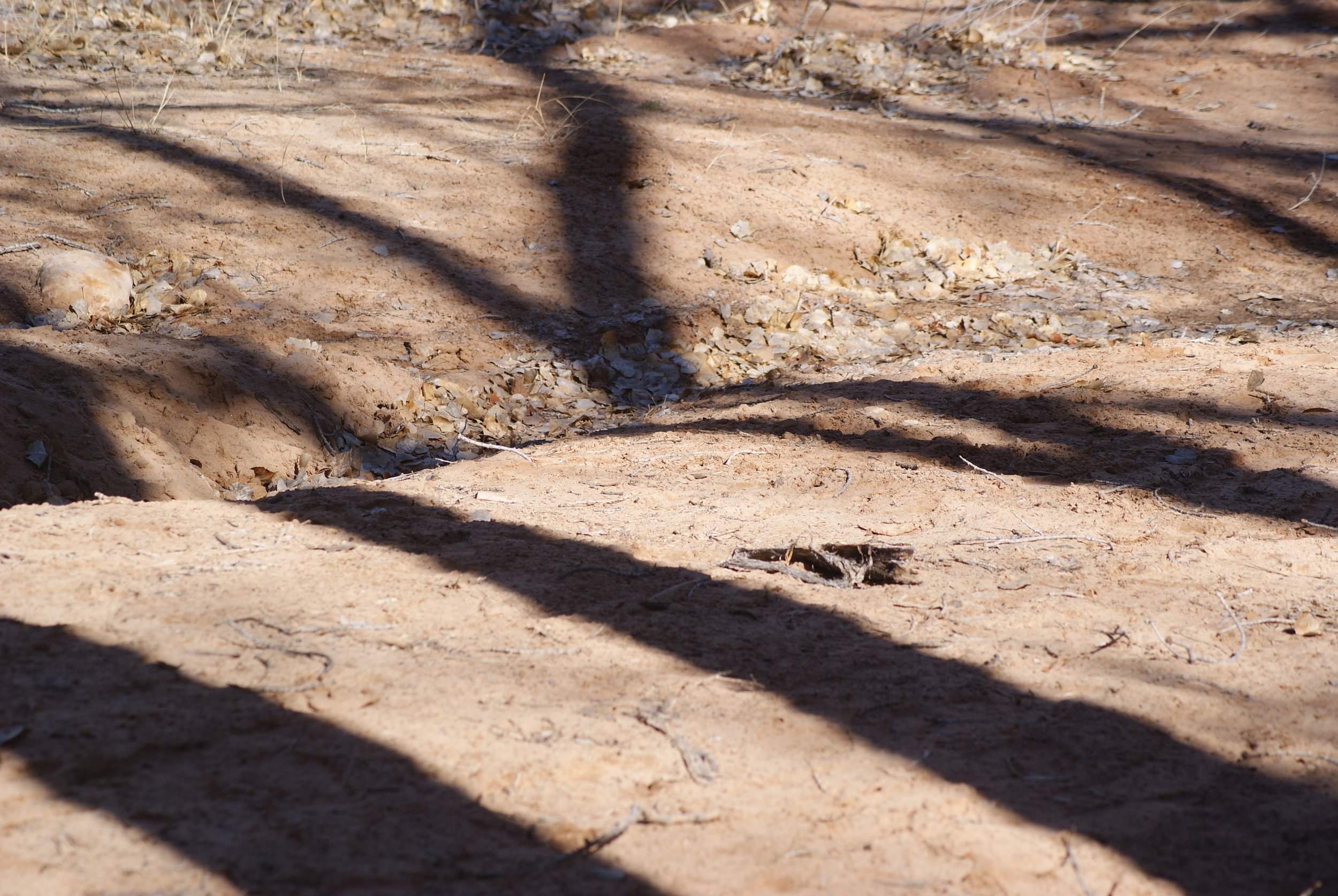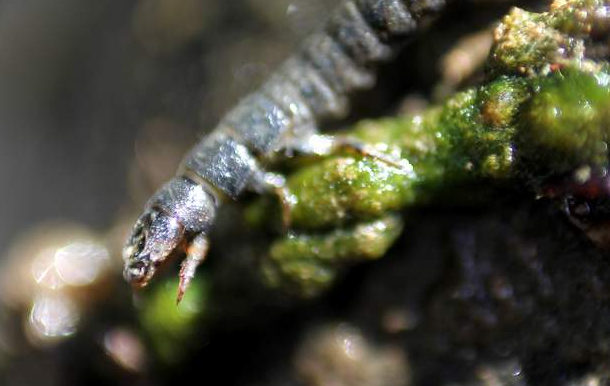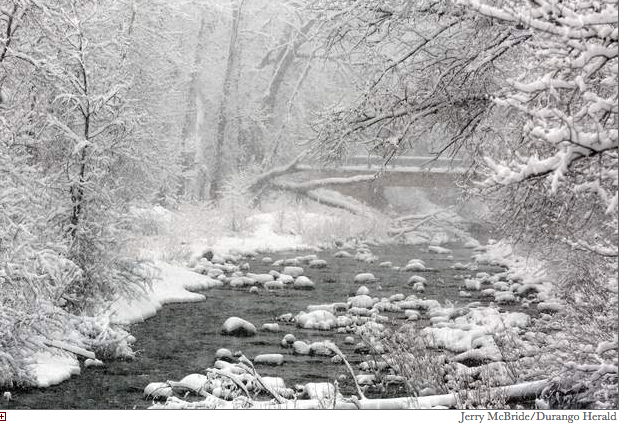Durango Herald: Despite reassurances from multiple agencies, many sources of data, and a dozen meetings, many people feel that they still do not have enough information to trust that the Animas River should be open for use after the Gold King Mine spill sent 3 million gallons of contaminated water into the river. There remains skepticism, both voiced and quiet, about the water and the river’s safety. Read More -->
The Legacy and Future of Mining in the San Juan Mountains
Gold King Mine adit.
The residents of La Plata County mourned the tangerine-colored river two weeks ago, and are now digesting the water quality data that the EPA and third party research institutions, like Mountain Studies Institute (MSI), have put forth to understand what this means for us and the future of the Animas River. Unfortunately, the events of early August were not a singular incident. They were a harsh reminder of a truth that exists in the mountains above us—the San Juan Mountains are peppered with abandoned mines that continually leach heavy metals into tributaries of the Animas River. The legacy of mining in the San Juan Mountains is the fabric of our current communities today. The metal-laden rocks that form this unique corridor of the Rocky Mountains provided
an economic opportunity that attracted people to take residence in this harsh environment and build a lifestyle that centered on extracting minerals from the mountains. To understand the complete impact of the Gold King Mine spill, we must understand the legacy and future of mining in the San Juan Mountains, and the reclamation of mining disturbances to ensure a healthier ecosystem.
MSI, along with our partners, host an annual San Juan Mining and Reclamation Conference that each year highlights a different San Juan Mountain communities’ mining heritage and successes in addressing mine remediation and water quality improvement. The conference is free and open to the public, and provides an educational opportunity for the public and other stakeholders to learn from industry professionals about the science and policy of mining, mine lands remediation, improving mining practices, and water quality as it pertains to non-point source pollution. You can watch videos of past San Juan Mining & Reclamation Conference presentations from industry professionals on our website: www.mountainstudies.org/sjmrc
The Gold King spill, while terribly alarming in and of itself, is not an isolated occurrence. More than anything, it highlights the need for mine reclamation in the San Juan Mountains. The San Juan Mining and Reclamation Conference provide an opportunity to discuss, educate and collaborate on the importance of clean up and reclamation of abandoned mines, like the Gold King, for public health. There are hundreds of mine adits, just like the Gold King that leak contaminated water into Cement Creek, and thereby the Animas River, every day. The importance of clean up and reclamation of all our upstream mines on water quality was horrifically apparent this month, but serves as a reminder of what we are silently contending with every day.
You can learn more about the legacy and future of mining in the San Juan Mountains by visiting our website: www.mountainstudies.org/sjmrc, and by watching the SJM&RC videos available through our website and utube: MountainstudiesCO. Consider attending next year’s mining conference to learn more about the issues we face and the ways that we have begun to address these problems. Thank you very much to all of the sponsors of the 2015 conference that made it possible to bring you this unique two-day educational opportunity to learn more about the region in which we live.
Read the press release at Durango Downtown.com
New York Times: When a River Runs Orange
Click Here for the full article.
High Country News: When Our River Turned Orange
When our river turned orange
Nine things you need to know about the Animas River mine waste spill.
Wall Street Journal:
Colorado Spill Impact Widens
Officials estimate about three million gallons of wastewater spilled into the Animas River.
Early signs good for Animas River biology
Fish in the Animas aren’t going hungry
Recent study confirms that Durango’s river is home to a diverse variety of bugs. Read the full article in the Durango Herald
MSI receives Forest Service award for The Four Corners Federal Land Internship Program
The San Juan National Forest and Mountain Studies Institute has won a U.S. Forest Service award for launching a program to offer college students experience in resource management. The Four Corners Federal Land Internship Program puts students to work alongside Forest Service and National Park Service staff.
Responding to climate change - Experts will address how to adapt in S.W. Colorado
From the Durango Herald, March 4th, 2015: "Marcie Demmy Bidwell, executive director of Mountain Studies Institute, and Renee Rondeau, a conservation biologist with Colorado Natural Heritage Program at Colorado State University, are scheduled to speak at the Green Business Roundtable next week. They will address future scenarios and the ability of businesses to adapt to the economics and ecological conditions."
Read the full Durango Herald article HERE
Learn More about the event HERE
Register for the event HERE
Historic Mill To Get A Boost
Courtesy of David Singer. The Sound Democrat Mill, thanks to stabilization efforts in the 1990s, now sits intact on a hillside on Placer Gulch northeast of Silverton. Top: The Sound Mill was crumbling before stabilization work.
From the Durango Herald 2/8/15: History Colorado, through the State Historical Fund grants program, last week announced 24 grants for historic-preservation projects. The Sound Democrat, located in Placer Gulch not far from Animas Forks, was among those to get a piece of the $3 million pie. Read the full story here.
Grants To Help Area Students Study Local Air Pollution
Marcie Demmy-Bidwell, director of Mountain Studies Institute, plants plugs of grass near Ophir Pass. The institute recently received a grant from the AirWaterGas Sustainability Research Network based at the University of Colorado Boulder. It will be holding discussions across the region on the relationship between water and energy.
The Durango Herald 2/5/15: Two local groups will work with researchers over the next year to monitor pollution and spread awareness about new air-quality regulations. Their work will be made possible thanks to two $5,000 grants from the AirWaterGas Sustainability Research Network based at the University of Colorado Boulder. Read the full story here.
River contamination related to human waste worries local leaders
Fire on the Mountain, Pagosa Daily Post
Hear Aaron Kimple of the San Juan Headwaters Forest Health Partnership, and Pagosa Ranger District forester Steve Hartvigsen engaging interested members of the Pagosa Springs community in a discussion about what, exactly, the term "forest health" might mean in the case of the 120 acres of Reservoir Hill Park.
Celebrating Animas Forks
The structures at the historic ghost town of Animas Forks will soon be ready to weather the harsh, isolated winters with help from a 2-year stabilization project, which will be completed in September...MSI again administered that grant as part of their mission to support heritage tourism in the San Juan’s.


















